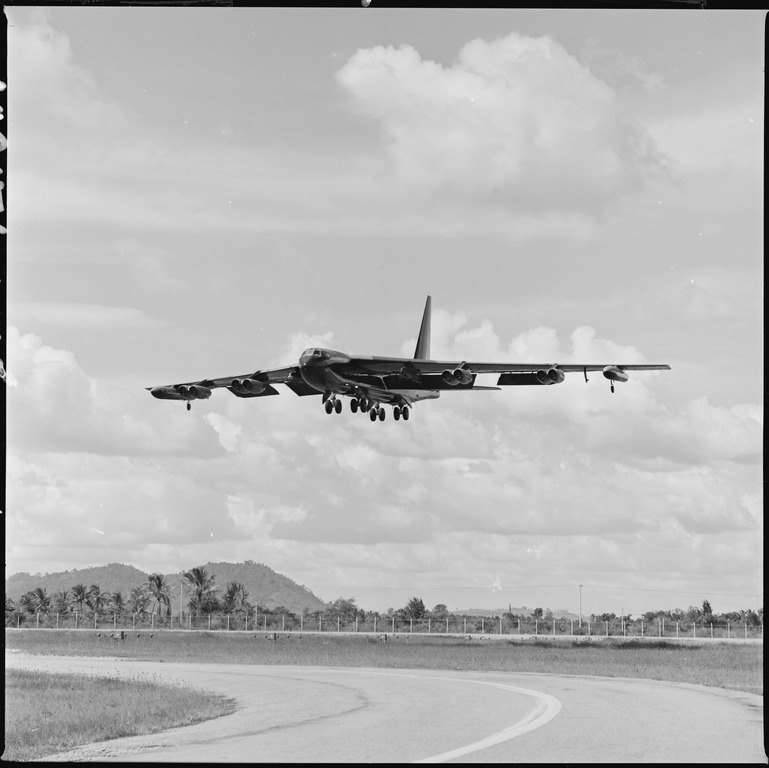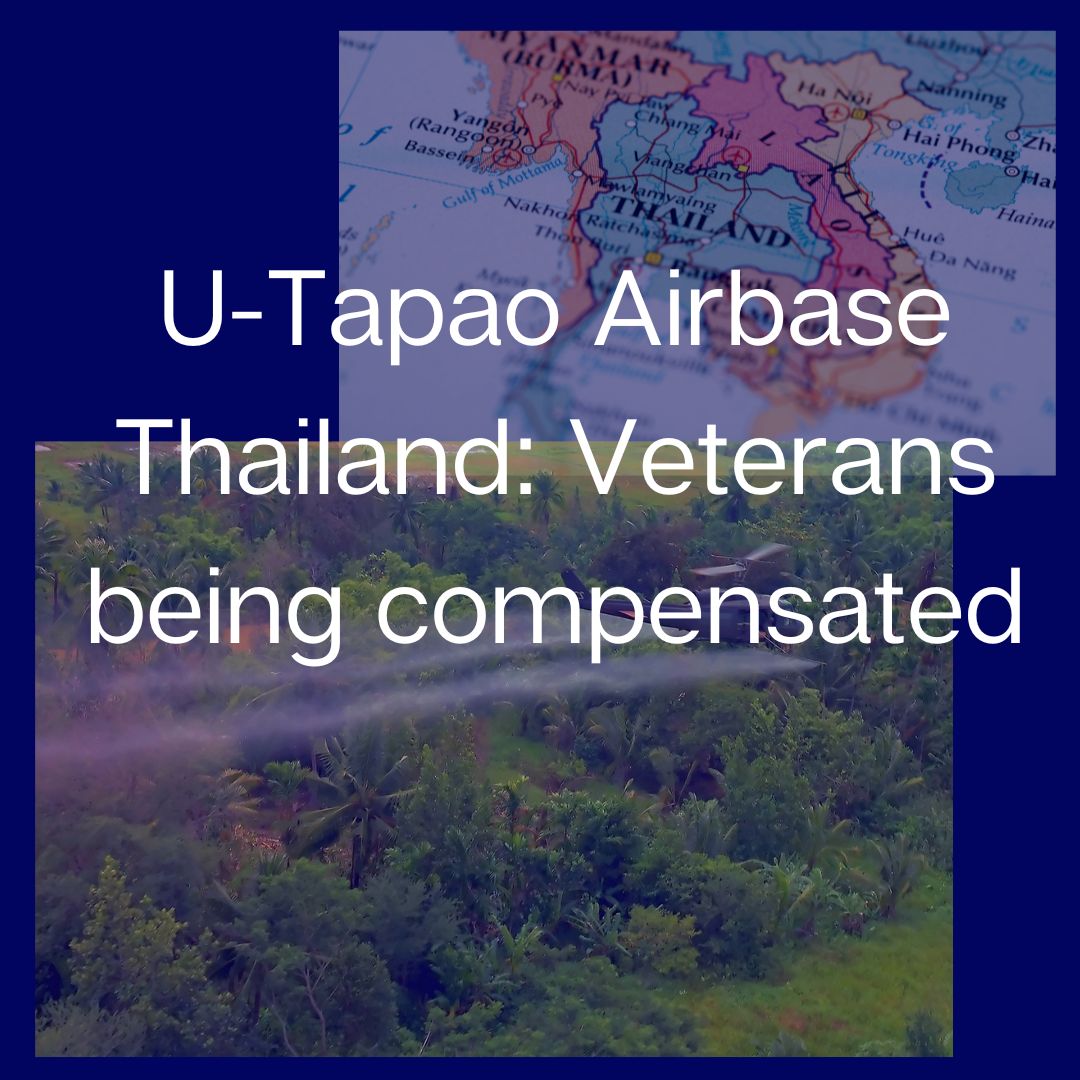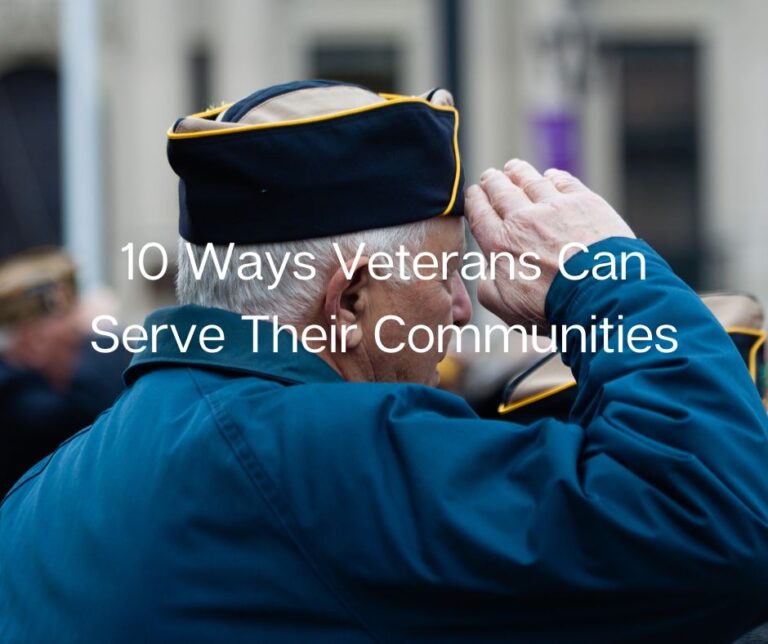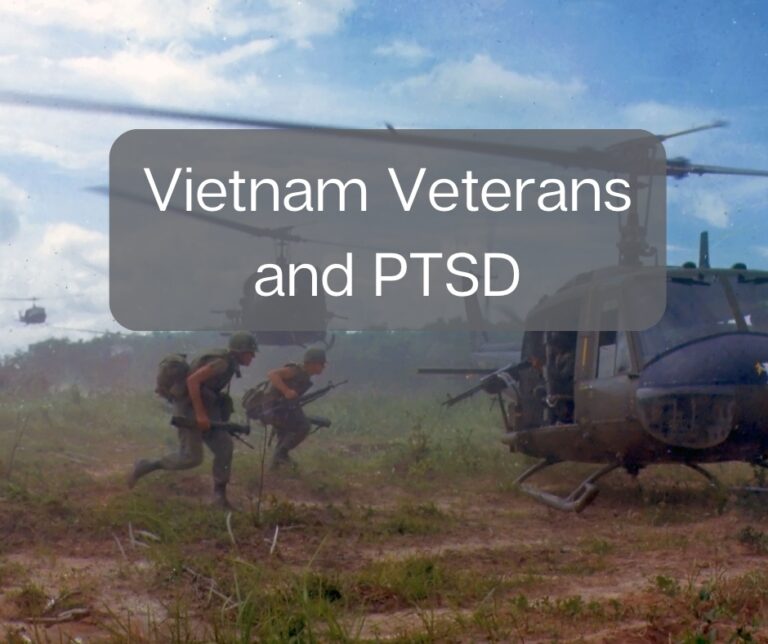Exposed: The Hidden Agent Orange Legacy at U-Tapao Airfield
U-Tapao Royal Thai Navy Airfield, often referred to as U-Tapao or U-Taphao, is an airfield located in the Sattahip district of Rayong province in Thailand. It played a significant role during the Vietnam War, serving as a major operational base for United States military forces. The link between veterans and U-Tapao largely stems from its use by the U.S. military during this period.
U-Tapao was initially developed as a major logistics and aircraft repair base by the United States in the 1960s to support its military operations in Vietnam. It hosted a significant number of U.S. Air Force B-52 bombers, reconnaissance planes, and refueling aircraft. The airfield was essential for launching bombing raids over Vietnam and Cambodia, and it also served as a key point for air logistics, maintenance, and support operations for the U.S. military in Southeast Asia.

Veterans who served in the Vietnam War, especially those involved in air operations, may have direct links to U-Tapao either through being stationed there, participating in missions that originated or ended at the airfield, or through support roles that contributed to the base’s operation.
Previously, in order for veterans to claim presumptive conditions for Agent Orange, they had to provide proof they were present close to the fence line of the base, usually working on the flightline on the base. This proved difficult for many veterans who were either stationed at U-Tapao, or traveled through the base en route to other locations. Veterans we have talked with told us about spending a day at U-Tapao, but not being able to provide proof they were actually present on the flightline.
With the passage of the PACT Act in August 2022, veterans no longer have to worry about where on base they were stationed, or even if they were on another base in Thailand. According to the PACT Act, veterans are covered for service “performed in Thailand at any United States or Royal Thai base during the period beginning on January 9, 1962, and ending on June 30, 1976, without regard to where on the base the veteran was located or what military job specialty the veteran performed;”
If you are a veteran who served anywhere in Thailand between the dates as stated above AND you have one of the presumptive conditions for Agent Orange, talk to a local Veteran Service Officer and submit your claim for disability compensation.
If you have any questions, please feel free to drop a comment below or email us at info@nwavet.org.








Great and needed information.
U-Tapao POL 72-73
Was there in 1968. Nice by the ocean. Was a bomb loader for 52’s there. Great place. Easy to learn Thai. Many great friends in 4258th Munitiond Squadron.
Learned to speak good@(Dee Mock) Thai language. Beautiful area n people. Jerry Dahlback (WI n MN)
IYAAUAS
I was there as a ammo troop June 71 to Sept 72
Made a couple typhoon evact trips there from Guam 1968 – 1969. Than KI Sawyer with hood bud Jerry. 46250 SSgt
Denny Reed
I was a security troop at U-Tapao, and as an E-3 spend a lot of nights out in the perimeter bunkers and towers. I enjoyed being out there much more than being on the flightline gates. I’m 69 now and no health issues yet. I enjoyed my assignment there and the rest of my 24 years in the Air Force. I double dipped and did 16 years with the U.S. Mint Police. Now I’m a lazy old do nothing.
Looking for anyone that confirm VP-46 was in U-Tapao in 1972.
They were located just south of maintenance building on west side of runway. Best I rember there were 3 of them parked side by side there. My phone number 501-289-1130 hope this helps
I was there June 1967-1968. My team loaded the bombs on the B-52. 24hrs 7days a week during the TET. We were trying to save our Marines. They kept getting into trouble over there.
James, I was also there July 1967-68 working at the command post communications center. I was told the first 3 buffs had just come a couple weeks before. So I was probably at the table next to yours in the airmens mess a few times. We worked some long hours but still had time to party hardy just to the left as you went off base. Would go back tomorrow and do it all again, if I could.
WELCOME HOME!! We did our job and proud of it!
Hello James,
I missed out on loading 500s and 750s on the Buff. In 1967 I was stationed at Mather, Ca loading and downloading nukes. Our bomb wing ( F Models ) was later being converted over for conventional bombing. Because of wiring and mechanical issues, it was difficult to get anything to operate correctly. During that time, I was transferred to McConnell, Kansas for training on the F-105. I ended up at Korat which was an interesting experience. We had F models which were used to detect sam sites. Loads were varied using 750s, CBUs, and AGM 45s. I was the #4 man, jammer jockey, and a few interesting loads that I remember, was loading three granders on the inboard pylons. Next base was NKP, all prop aircraft. We loaded A-26s, T-28s, A1-E Skyraiders and flares on C-123. All aircraft had their challenges, but with the A1-E you had to be on your toes so to speak. At the de-arm end of the runway, you had to climb up on the wing next to the fuselage, and then push out toward the end of the wing without getting blown off by prop wash. After a panel was opened, you and your partner underneath, cleared live rounds from the feeds, and when all was ready, on our signal, the pilot homed the bolts. All great experiences that I would not not trade anything. My time at Lowry was early 1966 with schooling at the Black Shack. Hope someone recognizes this posting, as there are not many of us left. I will reply. Larry
I was there April-October 1972 and then again June 1973-74 in the Jet Engine shop
Was TDY there in 1967. Worked in the bomb dump and delivered bombs to the flight line.